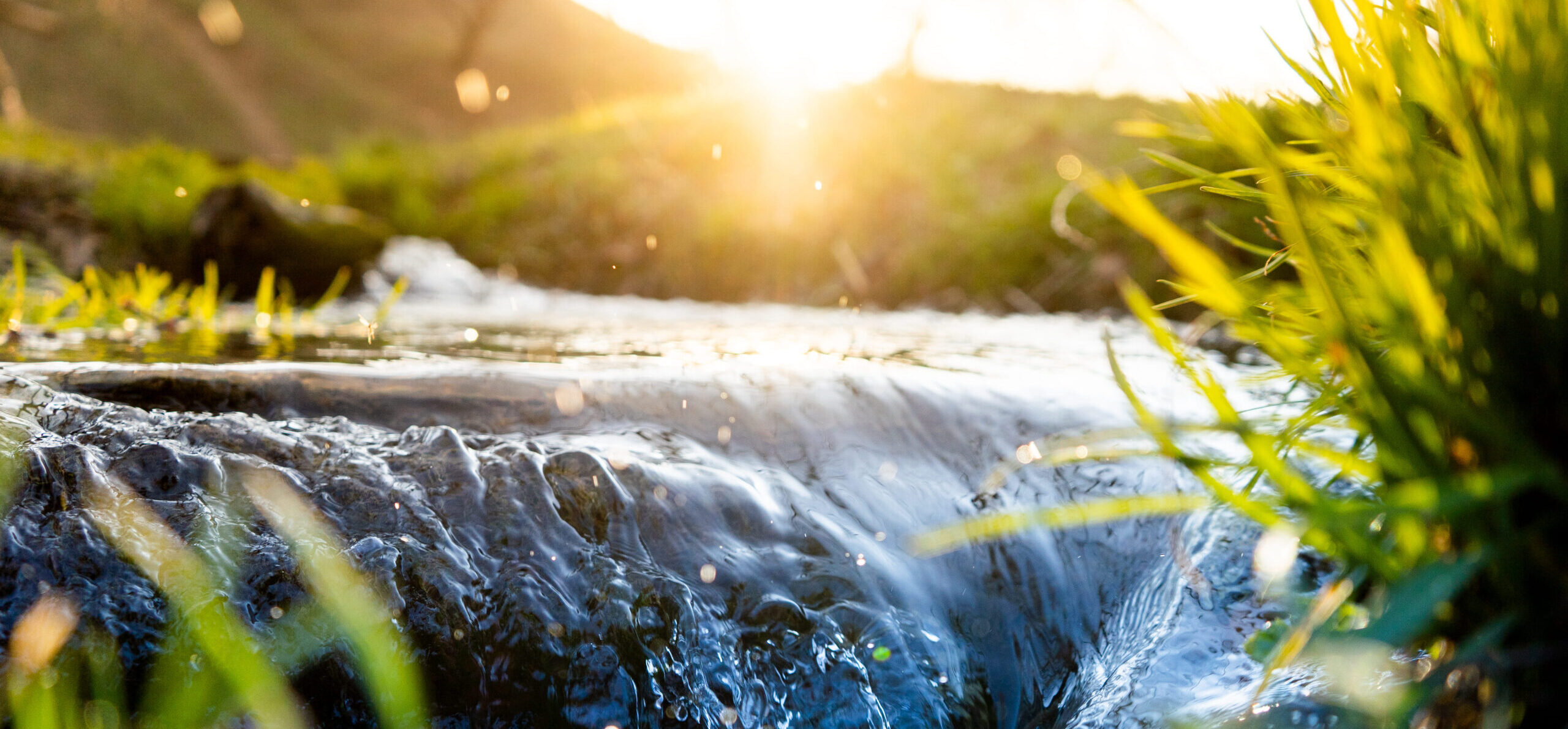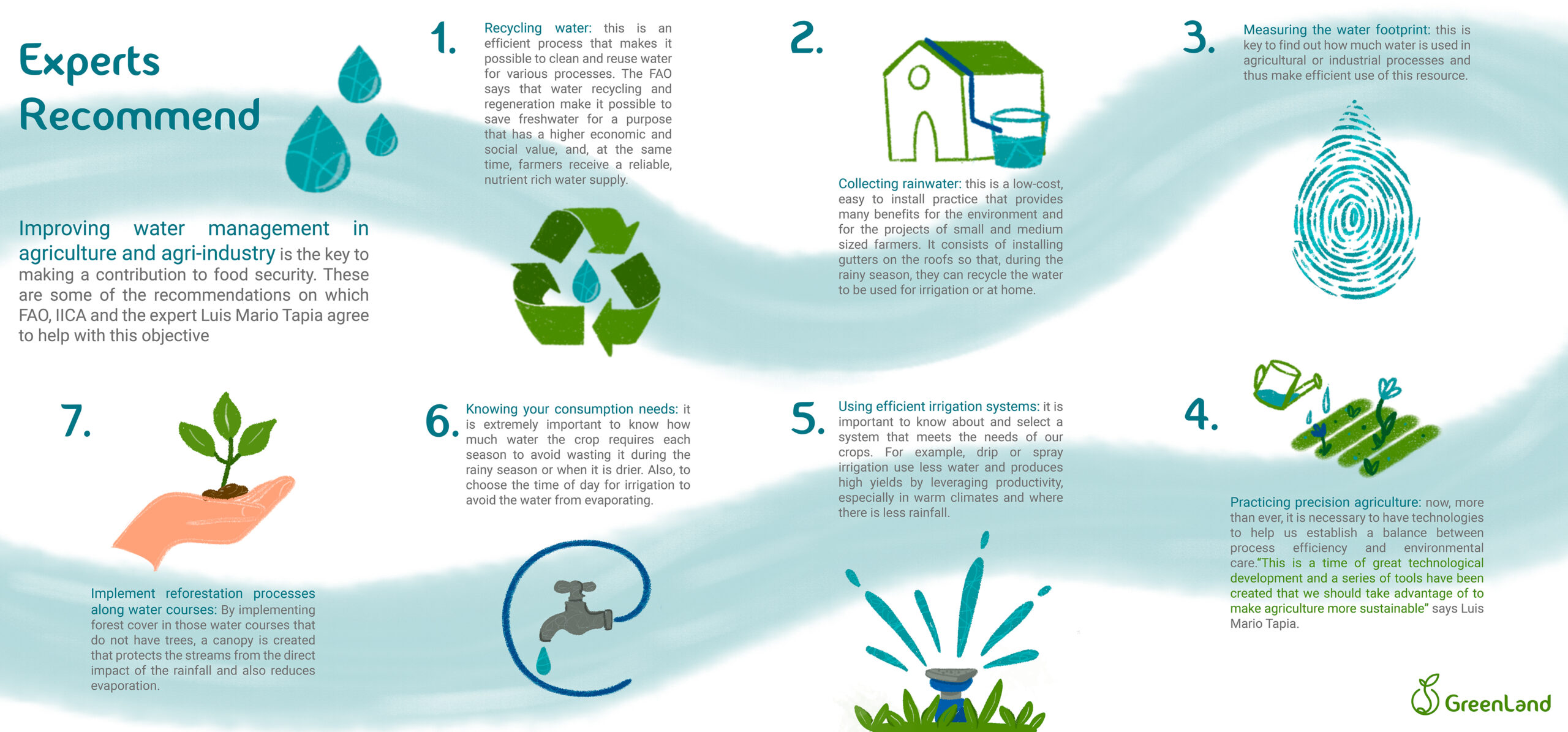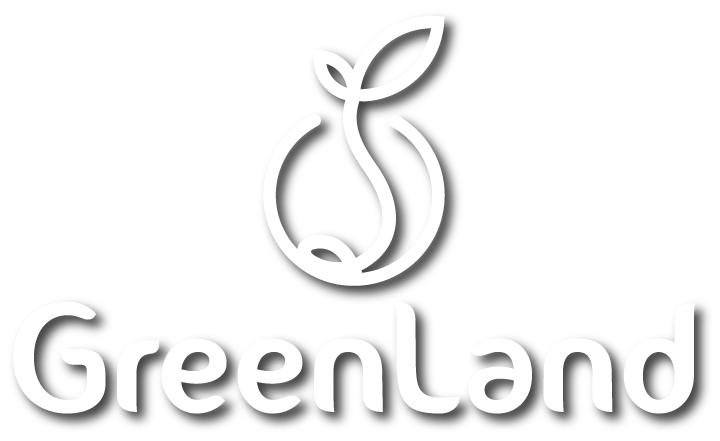
Efficient water management: a everyone’s commitment to the planet and the food security of the nations
Water is a fundamental resource for human, environmental, and economic development of the countries because it represents an incalculable value for food security and to guarantee revenue. Additionally, it supports life for all types of animals, plants, and microorganisms.
In this respect, the United Nations have made some statements about what water resources represent, stating that “water has a huge and complex value for our homes, culture, health, education, the economy, and the integrity of our natural environment. If we neglect any of these values, we run the risk of mismanaging this finite and non-substitutable resource”.
According to the projections of the United Nations Food and Agriculture Organization (FAO), by 2050 world population will exceed 9.1 billion people. To grow food to meet this demand it will be necessary to increase production by 70%, and water is a fundamental factor to achieve that.
Water and agriculture: an inseparable relationship
Throughout the world, good management of water resources has been an essential factor to increase the productivity of agriculture and ensure a predictable production.
In this respect, the Inter-American Institute for Cooperation on Agriculture (IICA) says that “agriculture is destined to play a major role in the future of humanity, not only because the food, the fibrous, and a significant amount of the energy that will be required in the future will be produced through this activity, but also because of the contribution to the conservation of natural resources and biodiversity.”
In that context, we spoke to Luis Mario Tapia -a researcher at the National Institute of Forest, Agriculture, and Livestock Institute in Mexico - about the importance of managing water resources in a responsible manner and implementing industry-based actions to help preserve that resource. The expert explained that, historically, agriculture has been the main supplier of food and has grown significantly until it has become, in many countries, the main source of revenue for the population .
“But this must be done carefully in managing water efficiently, as well as the other natural resources. We have the obligation of measuring how our actions and operations might affect the environment, the rivers, the lakes, and other bodies of water and, therefore, implement the necessary measures to protect them. Actions such as efficient irrigation, recycling and reusing water, implementing bio controls, and measuring the water footprint, for example, are some of the practices that help achieve that objective” says Tapia.
International reflections like this one have awakened in governments around the world the need to adopt measures to promote water security. In Colombia, the Ministry of the environment and sustainable development regulated, in 2021, the use of wastewater in order to encourage a more efficient use of hydric resources in agricultural services and irrigation of crops, green areas, or parks.
Additionally, in 2020, the Ministry of Agriculture and Rural Development set up ,in the National Irrigation Plan, the promotion of appropriate practices for using water in irrigation systems as a priority for achieving a sustainable agriculture.
The National Aquaculture Federation - FedeAcua - also promotes among farmers recirculation and aquaponics systems to optimize the use of water .
Good agricultural practices to preserve water
“Any human activity, if it is not performed carefully, can have significant environmental impacts”, says researcher Tapia. This is why it is absolutely necessary to adopt good agricultural practices to help the environment.
Both, independent farmers as well as companies which use the processes to drive a growing and sustainable agriculture must commit to plans that enable an efficient use of natural resources.
“Plants are, in a way, like human beings: they do not need large amounts of water to live. By adopting preventive measures, we can reduce up to 70% the amount of water used for crops, increasing their productivity, and making a more efficient use of water” researcher Luis Mario Tapia asserts.






